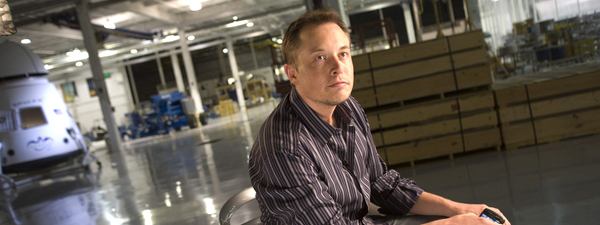Well, what a surprise – Elon Musk is in the news again. A few days ago, he offered to help out beleaguered Boeing, whose pride and joy, the new 787 Dreamliner, has been grounded because of its battery pack problems. Now Musk has criticized the Dreamliner’s battery design as “inherently unsafe,” in an email to aviation news source Flightglobal.
Boeing’s battery uses a grouping of eight large cells, unlike Tesla’s batteries, which contain thousands of smaller cells.
“Large cells without enough space between them to isolate against the cell-to-cell thermal domino effect means it is simply a matter of time before there are more incidents of this nature,” Musk told Flightglobal. “Moreover, when thermal runaway occurs with a big cell, a proportionately larger amount of energy is released and it is very difficult to prevent that energy from then heating up the neighboring cells and causing a domino effect that results in the entire pack catching fire.”
There’s no doubt that Mr Musk knows a bit about batteries. Tesla is a leader in lithium-ion technology, and his other company, SpaceX, also makes use of lithium-ion battery packs in its spacecraft. Donald Sadoway, a professor of electrical engineering at the Massachusetts Institute of Technology, agreed with Musk. “I would have used the same words,” Sadoway told Flightglobal.
On the other hand, the entrepreneurial Elon’s comments could be seen as self-serving, as SpaceX competes with Boeing for certain government contracts. Also, as John Voelcker of Green Car Reports pointed out, Tesla is the only major EV maker that builds its packs out of thousands of small lithium-ion cells (18650s made by Panasonic). Its competitors use hundreds of large-format cells.
It’s worth pointing out here that battery design is a highly complex field. Different battery cells within the lithium-ion family may use very different chemistries, and have very different properties. Differences in the way the cells are aggregated into a pack, and the type of thermal conditioning, which keeps a pack within an acceptable temperature range, can also mean huge differences in performance. Boeing’s battery packs are not directly comparable with the packs used in any of today’s production plug-in vehicles.
Meanwhile, Boeing has no plans to scale back production, or change battery packs, at least so far. CEO Jim McNerney told the Chicago Sun-Times, “Nothing we have learned yet has told us that we have made the wrong choice on the battery technology.” The company has just released its fourth-quarter earnings and gave a 2013 profit forecast that beat Wall Street expectations.
Image: oninnovation (flickr)
Sources: Flightglobal, Green Car Reports, Chicago Sun-Times


















































